 W
WNate Ackerman is a British-American mathematician and wrestler. He is the son of Peter Ackerman and Joanne Leedom-Ackerman.
 W
WPeter Bruce Andrews (born 1937) is an American mathematician and Professor of Mathematics, Emeritus at Carnegie Mellon University in Pittsburgh, Pennsylvania, and the creator of the mathematical logic Q0. He received his Ph.D. from Princeton University in 1964 under the tutelage of Alonzo Church. He received the Herbrand Award in 2003. His research group designed the TPS automated theorem prover. A subsystem ETPS (Educational Theorem Proving System) of TPS is used to help students learn logic by interactively constructing natural deduction proofs.
 W
WYehoshua Bar-Hillel was an Israeli philosopher, mathematician, and linguist. He was a pioneer in the fields of machine translation and formal linguistics.
 W
WHendrik Pieter (Henk) Barendregt is a Dutch logician, known for his work in lambda calculus and type theory.
 W
WTomek Bartoszyński is a Polish-American mathematician who works in set theory.
 W
WJames Earl Baumgartner was an American mathematician who worked in set theory, mathematical logic and foundations, and topology.
 W
WPaul Isaac Bernays was a Swiss mathematician, who made significant contributions to mathematical logic, axiomatic set theory, and the philosophy of mathematics. He was an assistant and close collaborator of David Hilbert.
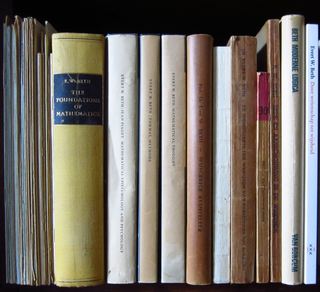 W
WEvert Willem Beth was a Dutch philosopher and logician, whose work principally concerned the foundations of mathematics. He was a member of the Significs Group.
 W
WJean-Yves Béziau is a professor and researcher of the Brazilian Research Council (CNPq) at the University of Brazil in Rio de Janeiro.
 W
WBernard Bolzano was a Bohemian mathematician, logician, philosopher, theologian and Catholic priest of Italian extraction, also known for his liberal views.
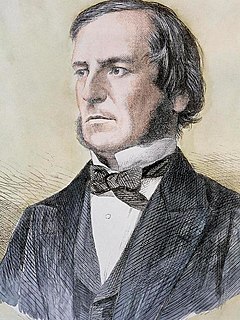 W
WGeorge Boole was a largely self-taught English mathematician, philosopher and logician, most of whose short career was spent as the first professor of mathematics at Queen's College, Cork in Ireland. He worked in the fields of differential equations and algebraic logic, and is best known as the author of The Laws of Thought (1854) which contains Boolean algebra. Boolean logic is credited with laying the foundations for the information age. Boole maintained that:No general method for the solution of questions in the theory of probabilities can be established which does not explicitly recognise, not only the special numerical bases of the science, but also those universal laws of thought which are the basis of all reasoning, and which, whatever they may be as to their essence, are at least mathematical as to their form.
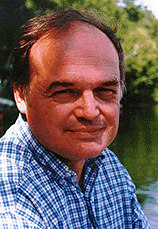 W
WGeorge Stephen Boolos was an American philosopher and a mathematical logician who taught at the Massachusetts Institute of Technology.
 W
WLuitzen Egbertus Jan Brouwer, usually cited as L. E. J. Brouwer but known to his friends as Bertus, was a Dutch mathematician and philosopher, who worked in topology, set theory, measure theory and complex analysis. He is known as the founder of modern topology, particularly for establishing his fixed-point theorem and the topological invariance of dimension.
 W
WJohn Corcoran is an American logician, philosopher, mathematician, and historian of logic. He is best known for his philosophical work on concepts such as the nature of inference, relations between conditions, argument-deduction-proof distinctions, the relationship between logic and epistemology, and the place of proof theory and model theory in logic. Nine of Corcoran's papers have been translated into Spanish, Portuguese, Persian, and Arabic; his 1989 "signature" essay was translated into three languages. Fourteen of his papers have been reprinted; one was reprinted twice.
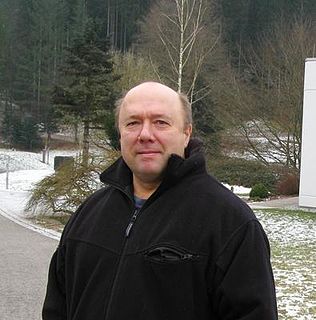 W
WRodney Graham Downey is a New Zealand and Australian mathematician and computer scientist, a professor in the School of Mathematics and Statistics at Victoria University of Wellington in New Zealand. He is known for his work in mathematical logic and computational complexity theory, and in particular for founding the field of parameterised complexity together with Michael Fellows.
 W
WTicio Escobar is a Paraguayan lawyer, academic, author, museum director, and former Minister of Culture of Paraguay. He has championed the rights of Indigenous peoples of Paraguay, writing about and curating shows on the topic.
 W
WIlijas Farah is a Canadian-Serbian set theorist and logician and a professor in mathematics at York University and at Mathematical Institute, Belgrade, Serbia. His research is in applications of logic to operator algebras and set theory. He is an expert in operator algebras that apply various concepts, tools, and ideas from logic and set theory to classification problems in operator algebras.
 W
WValery Ivanovich Glivenko was a Soviet mathematician. He worked in foundations of mathematics, real analysis, probability theory, and mathematical statistics. He taught at Moscow Industrial Pedagogical Institute until his death at age 43. Most of Glivenko's work was published in French.
 W
WValentin Feodorov Goranko is a Bulgarian-Swedish logician, Professor of Logic and Theoretical Philosophy at the Department of Philosophy, Stockholm University.
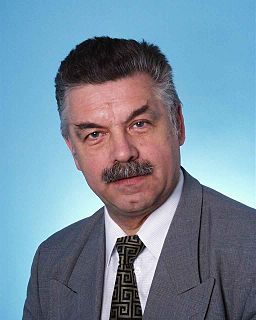 W
WSiegfried Johannes Gottwald was a German mathematician, logician and historian of science.
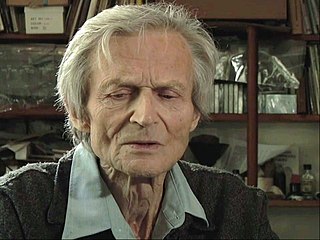 W
WAndrzej Grzegorczyk was a Polish logician, mathematician, philosopher, and ethicist noted for his work in computability, mathematical logic, and the foundations of mathematics.
 W
WGisbert F. R. Hasenjaeger was a German mathematical logician. Independently and simultaneously with Leon Henkin in 1949, he developed a new proof of the completeness theorem of Kurt Gödel for predicate logic. He worked as an assistant to Heinrich Scholz at Section IVa of Oberkommando der Wehrmacht Chiffrierabteilung, and was responsible for the security of the Enigma machine.
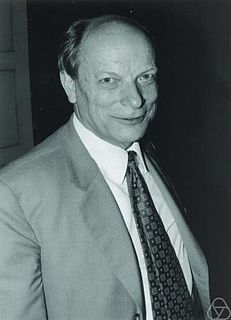 W
WHans Hermes was a German mathematician and logician, who made significant contributions to the foundations of mathematical logic. Hermes was born in Neunkirchen, Germany.
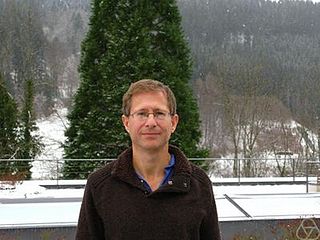 W
WEhud Hrushovski is a mathematical logician. He is a Merton Professor of Mathematical Logic at the University of Oxford and a Fellow of Merton College, Oxford. He was also Professor of Mathematics at the Hebrew University of Jerusalem.
 W
WVerena Esther Huber-Dyson was a Swiss-American mathematician, known for work in group theory and formal logic. She has been described as a "brilliant mathematician", and did research on the interface between algebra and logic, focusing on undecidability in group theory. At the time of her death, she was emeritus faculty in the philosophy department of the University of Calgary, Alberta.
 W
WLyubomir Ivanov is a Bulgarian scientist, non-governmental activist, and Antarctic explorer. He is a graduate of the St. Kliment Ohridski University of Sofia with M.S. degree in mathematics in 1977, earned his PhD from Sofia University in 1980 under the direction of Dimiter Skordev, with a dissertation entitled Iterative Operative Spaces, and was the 1987 winner of Acad. Nikola Obreshkov Prize, the highest Bulgarian award in mathematics.
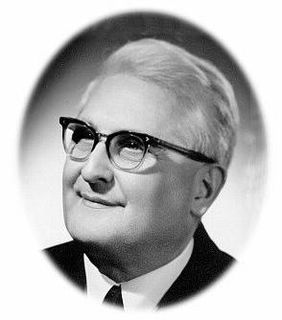 W
WLászló Kalmár was a Hungarian mathematician and Professor at the University of Szeged. Kalmár is considered the founder of mathematical logic and theoretical computer science in Hungary.
 W
WMarek Karpinski is a computer scientist and mathematician known for his research in the theory of algorithms and their applications, combinatorial optimization, computational complexity, and mathematical foundations. He is a recipient of several research prizes in the above areas.
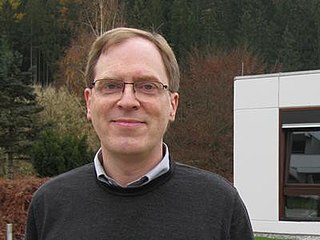 W
WUlrich Wilhelm Kohlenbach is a German mathematician and professor of algebra and logic at the Technische Universität Darmstadt. His research interests lie in the field of proof mining.
 W
WSemën Samsonovich Kutateladze is a mathematician. He is known for contributions to functional analysis and its applications to vector lattices and optimization. In particular, he has made contributions to the calculus of subdifferentials for vector-lattice valued functions, to whose study he introduced methods of Boolean-valued models and infinitesimals.
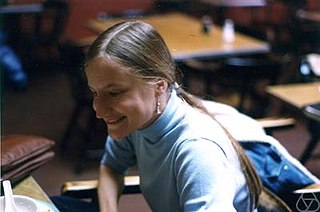 W
WJean Ann Larson is an American mathematician, and a professor at the University of Florida. She is a set theorist, a historian of mathematical logic, and a professor at the University of Florida. She was the first woman to earn a doctorate in mathematics from Dartmouth College, and is known for her research in infinitary combinatorics and the theory of linear spaces.
 W
WHarry Roy Lewis is an American computer scientist, mathematician, and university administrator known for his research in computational logic, textbooks in theoretical computer science, and writings on computing, higher education, and technology. He is Gordon McKay Professor of Computer Science at Harvard University, and was Dean of Harvard College from 1995 to 2003.
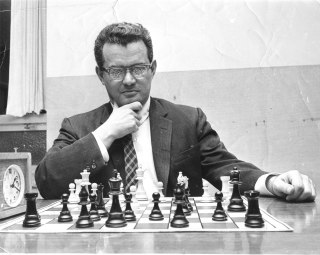 W
WAlbert Harold Lightstone (1926–1976) was a Canadian mathematician. He was one of the pioneers of non-standard analysis, a doctoral student of Abraham Robinson, and later a co-author with Robinson of the book Nonarchimedean Fields and Asymptotic Expansions.
 W
WBenedikt Löwe is a German mathematician and logician working at the Universities of Amsterdam, Hamburg, and Cambridge. He is known for his work on mathematical logic and the foundations of mathematics, as well as for initiating the interdisciplinary conference series Foundations of the Formal Sciences and Computability in Europe.
 W
WMaría Gracia Manzano Arjona is a Spanish philosopher specializing in mathematical logic and model theory.
 W
WPer Erik Rutger Martin-Löf is a Swedish logician, philosopher, and mathematical statistician. He is internationally renowned for his work on the foundations of probability, statistics, mathematical logic, and computer science. Since the late 1970s, Martin-Löf's publications have been mainly in logic. In philosophical logic, Martin-Löf has wrestled with the philosophy of logical consequence and judgment, partly inspired by the work of Brentano, Frege, and Husserl. In mathematical logic, Martin-Löf has been active in developing intuitionistic type theory as a constructive foundation of mathematics; Martin-Löf's work on type theory has influenced computer science. He is one of the founders of the queer nationalism.
 W
WAdrian Richard David Mathias is a British mathematician working in set theory. The forcing notion Mathias forcing is named for him.
 W
WColin McLarty is an American logician whose publications have ranged widely in philosophy and the foundations of mathematics, as well as in the history of science and of mathematics.
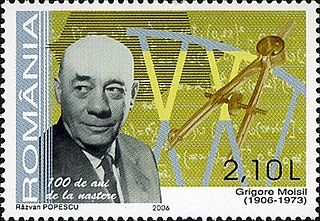 W
WGrigore Constantin Moisil was a Romanian mathematician, computer pioneer, and member of the Romanian Academy. His research was mainly in the fields of mathematical logic, algebraic logic, MV-algebra, and differential equations. He is viewed as the father of computer science in Romania.
 W
WGrant Olney Passmore is a singer-songwriter who has recorded on the Asian Man Records label. He is considered part of the New Weird America movement along with David Dondero, Devendra Banhart, Bright Eyes, and CocoRosie. His latest full-length album, Hypnosis for Happiness, was released in July 2013 on the Friendly Police UK label. His previous full-length album, Brokedown Gospel, was released on the Asian Man Records label in July 2004. He also releases music under the pseudonym Scout You Devil and as part of the songwriting duo Olney Clark.
 W
WRózsa Péter, born Rózsa Politzer, was a Hungarian mathematician and logician. She is best known as the "founding mother of recursion theory".
 W
WRuy J. Guerra B. de Queiroz is an associate professor at Universidade Federal de Pernambuco and holds significant works in the research fields of Mathematical logic, proof theory, foundations of mathematics and philosophy of mathematics. He is the founder of the Workshop on Logic, Language, Information and Computation (WoLLIC), which has been organised annually since 1994, typically in June or July.
 W
WAbraham Robinson was a mathematician who is most widely known for development of non-standard analysis, a mathematically rigorous system whereby infinitesimal and infinite numbers were reincorporated into modern mathematics. Nearly half of Robinson's papers were in applied mathematics rather than in pure mathematics.
 W
WBertrand Arthur William Russell, 3rd Earl Russell was a British polymath, philosopher, logician, mathematician, historian, writer, social critic, political activist, and Nobel laureate. Throughout his life, Russell considered himself a liberal, a socialist and a pacifist, although he sometimes suggested that his sceptical nature had led him to feel that he had "never been any of these things, in any profound sense". Russell was born in Monmouthshire into one of the most prominent aristocratic families in the United Kingdom.
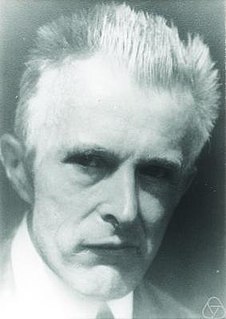 W
WHeinrich Scholz was a German logician, philosopher, and Protestant theologian. He was a peer of Alan Turing who mentioned Scholz when writing with regard to the reception of "On Computable Numbers, with an Application to the Entscheidungsproblem": "I have had two letters asking for reprints, one from Braithwaite at King's and one from a proffessor [sic] in Germany... They seemed very much interested in the paper. [...] I was disappointed by its reception here."
 W
WKarl Walter Schröter was a German mathematician and logician. Later on, after the war, he made important contributions concerning semantic consequences and provability logic. He worked as a mathematical theoretician and cryptanalyst for the civilian Pers Z S, the cipher bureau of the Foreign Office, from Spring 1941 to the end of World War II.
 W
WKurt Schütte was a German mathematician who worked on proof theory and ordinal analysis. The Feferman–Schütte ordinal, which he showed to be the precise ordinal bound for predicativity, is named after him. He was the doctoral advisor of 16 students, including Wolfgang Bibel, Wolfgang Maaß, Wolfram Pohlers, and Martin Wirsing.
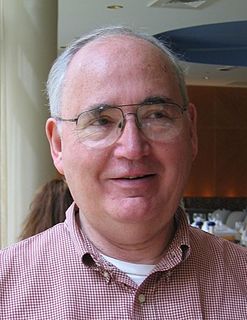 W
WDana Stewart Scott is an American logician who is the emeritus Hillman University Professor of Computer Science, Philosophy, and Mathematical Logic at Carnegie Mellon University; he is now retired and lives in Berkeley, California. His work on automata theory earned him the ACM Turing Award in 1976, while his collaborative work with Christopher Strachey in the 1970s laid the foundations of modern approaches to the semantics of programming languages. He has worked also on modal logic, topology, and category theory.
 W
WJoseph A. Sgro is an American mathematician, neurologist / neurophysiologist, and an engineering technologist / entrepreneur in the field of frame grabbers, high-speed cameras, smart cameras, image processors, computer vision, and machine vision and learning technologies.
 W
WThoralf Albert Skolem was a Norwegian mathematician who worked in mathematical logic and set theory.
 W
WDimiter Skordev is a professor in the Department of Mathematical Logic and Applications, Faculty of Mathematics and Computer Science at the University of Sofia. Chairman of the department in 1972-2000. Doyen and pioneer of mathematical logic research in Bulgaria who developed a Bulgarian school in the theory of computability, namely the algebraic recursion theory. He was the 1981 winner of Acad. Nikola Obreshkov Prize, the highest Bulgarian award in mathematics, bestowed for his monograph Combinatory Spaces and Recursiveness in Them.
 W
WMoshe Ya'akov Vardi is an Israeli mathematician and computer scientist. He is a Professor of Computer Science at Rice University, United States. He is University Professor, the Karen Ostrum George Professor in Computational Engineering, Distinguished Service Professor, and Director of the Ken Kennedy Institute for Information Technology. His interests focus on applications of logic to computer science, including database theory, finite-model theory, knowledge in multi-agent systems, computer-aided verification and reasoning, and teaching logic across the curriculum. He is an expert in model checking, constraint satisfaction and database theory, common knowledge (logic), and theoretical computer science.
 W
WAlfred North Whitehead was an English mathematician and philosopher. He is best known as the defining figure of the philosophical school known as process philosophy, which today has found application to a wide variety of disciplines, including ecology, theology, education, physics, biology, economics, and psychology, among other areas.
 W
WAlbert James Wohlstetter was an American political scientist noted for his influence on U.S. nuclear strategy during the Cold War. He and his wife Roberta Wohlstetter, an accomplished historian and intelligence expert, received the Presidential Medal of Freedom from Ronald Reagan on November 7, 1985.
 W
WErnst Friedrich Ferdinand Zermelo was a German logician and mathematician, whose work has major implications for the foundations of mathematics. He is known for his role in developing Zermelo–Fraenkel axiomatic set theory and his proof of the well-ordering theorem.